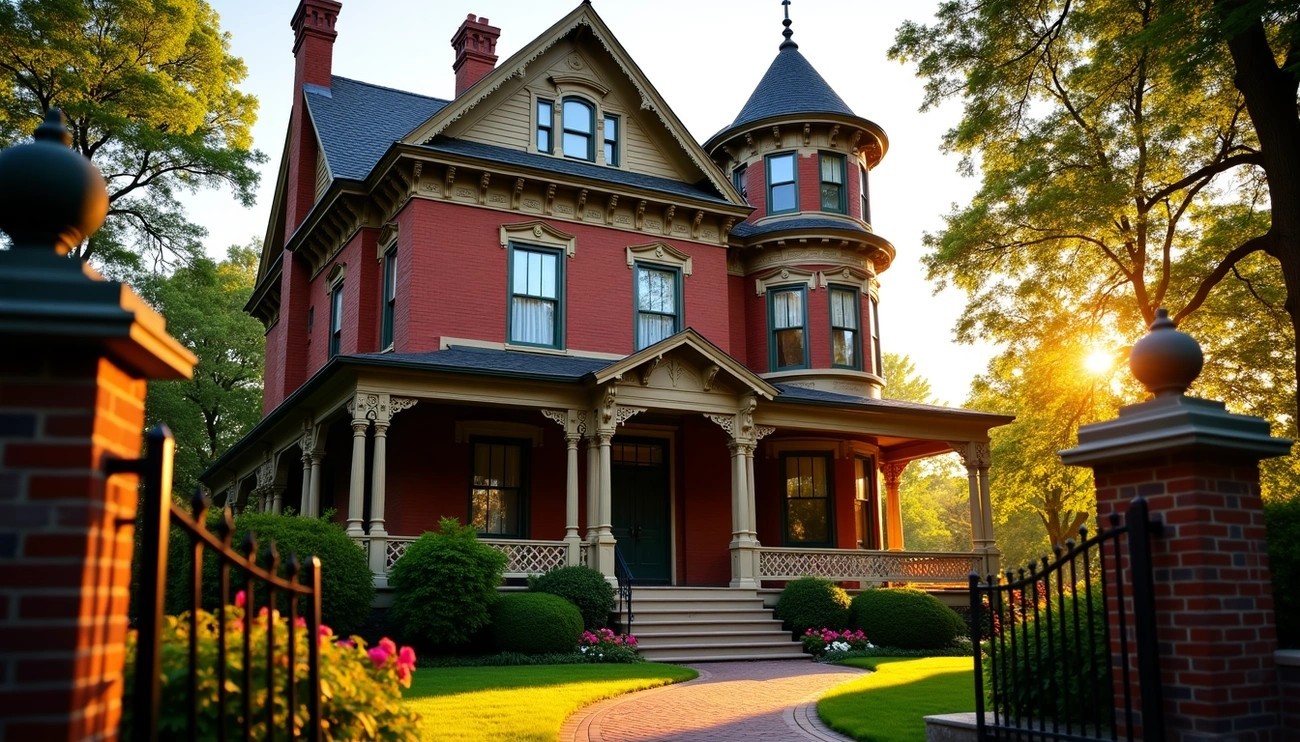The Whitby housing market in 2025 presents homeowners with a crucial question: is it better to downsize to a cozier property or upsize to a more spacious home? This decision extends far beyond simply choosing square footage. Whether you’re an empty nester considering a townhouse or a growing family eyeing larger detached homes, the sizing choice you make today will impact your finances and lifestyle for years to come.
When it comes to housing decisions in Whitby, timing matters. With the current mix of interest rates, property values, and neighbourhood development across the Durham Region, 2025 offers unique considerations for both downsizing and upsizing. The financial implications alone—from potential equity release to increased carrying costs—require careful thought.
Understanding Downsizing and Upsizing in Whitby
Homeowners in Whitby face different housing options depending on their life stage, financial goals, and future plans. To make an informed decision, it’s crucial to understand what each option truly entails beyond just square footage.
What does downsizing mean in 2025?
Downsizing in Whitby’s current market refers to moving from a larger property to a smaller, more manageable living space. This shift typically involves empty nesters, retirees, or individuals seeking simplified living arrangements. In 2025, downsizing often means transitioning from detached family homes to townhouses, bungalows, or condominiums in walkable neighborhoods.
For many Whitby residents, downsizing represents an opportunity to release equity tied up in larger properties. The financial advantage comes from selling a more valuable property and purchasing a less expensive one, potentially resulting in significant cash reserves. Furthermore, smaller properties generally mean reduced monthly expenses – from heating and cooling costs to property taxes and maintenance.
Beyond financial considerations, downsizing in 2025 frequently aligns with lifestyle simplification. Many downsizers report increased satisfaction from:
- Reduced home maintenance responsibilities
- Lower utility costs and environmental footprint
- Closer proximity to amenities and services
- Simplified living spaces requiring less upkeep
- Enhanced security in multi-unit developments
What does upsizing involve for Whitby homeowners?
Conversely, upsizing involves transitioning to a larger home with additional space and amenities. In Whitby, this typically means moving from a starter home, townhouse, or condominium to a more spacious detached property. For growing families, remote workers, or multi-generational households, upsizing provides room to accommodate changing needs.
The upsizing process usually requires significant financial planning. Homeowners must consider not just the higher purchase price but also increased property taxes, utility costs, and maintenance expenses. Additionally, the current interest rate environment means larger mortgages come with substantial carrying costs.
Upsizing in Whitby often focuses on neighbourhoods with specific amenities. Families particularly value proximity to quality schools, parks, and recreation facilities. Meanwhile, multi-generational households prioritize layouts that provide privacy and independence for all residents, such as homes with finished basements or separate entrances.
Why this decision matters more now than ever
The timing of downsizing or upsizing has taken on new significance in 2025. Several factors make this housing decision particularly consequential:
First, Whitby’s real estate market continues to evolve rapidly. Property values in different neighbourhoods are shifting at varying rates, creating opportunities for strategic moves. Some areas are seeing faster appreciation for smaller properties, while others favour larger homes.
Second, demographic shifts are reshaping housing needs. As baby boomers enter retirement years, demand for accessible, low-maintenance properties increases. Simultaneously, millennials forming families create demand for larger homes in family-friendly neighbourhoods.
Third, work arrangements continue to influence housing decisions. With remote and hybrid work now established, dedicated home office space remains essential for many households. This requirement can push some toward upsizing while others reconfigure existing spaces.
Finally, economic considerations loom large. Interest rates, inflation, and housing market conditions make the financial implications of housing decisions especially significant. The equity position, carrying costs, and future resale potential all factor into whether downsizing or upsizing makes financial sense for Whitby homeowners.
Making the right sizing decision requires careful assessment of current needs alongside future plans. This evaluation must account for both immediate lifestyle factors and longer-term financial implications.
Financial Impact of Downsizing vs. Upsizing
Making financial decisions about your home requires careful analysis of both immediate costs and long-term implications. The choice between downsizing and upsizing in Whitby carries significant monetary consequences that extend far beyond the initial transaction.
Home sale profits vs. new purchase costs
The financial equation starts with the difference between selling your current home and purchasing a new one. For downsizers, this often results in a cash surplus. Consider that in Whitby’s mature neighbourhoods, larger detached homes typically sell for $150,000-$300,000 more than smaller townhomes or condos. This price difference creates substantial equity that can be redirected toward retirement savings, investments, or lifestyle improvements.
In contrast, those who upsize face additional costs beyond the higher purchase price. These include:
- Increased land transfer taxes on higher-value properties
- Moving costs for larger households and more possessions
- New furniture purchases for additional rooms
- Landscaping expenses for bigger yards
- Home upgrades to match neighbourhood standards
Given that closing costs alone typically add 1.5-4% to the purchase price, upsizing in Whitby’s current market requires substantial financial planning.
Property taxes and utility bills: Smaller vs. larger homes
The ongoing cost difference between smaller and larger homes is substantial. Property taxes in Whitby directly correlate with assessed value and square footage. A 3,000 sq. ft. detached home might carry annual property taxes approximately $2,000-$3,000 higher than a 1,500 sq. ft. townhouse in the same neighborhood.
Moreover, utility costs show even more dramatic differences. Heating, cooling, and electricity expenses for larger homes often exceed those of smaller properties by 40-60%. This translates to several hundred dollars per month—a recurring savings for downsizers or an additional expense for those who upsize.
Water bills likewise reflect home size and occupancy, with larger households typically consuming 30-50% more than smaller ones. These ongoing utility differences compound over years of homeownership.
Maintenance and renovation costs comparison
The financial impact of maintenance varies significantly based on property size. Smaller properties generally require less upkeep, with annual maintenance costs averaging 1% of the property value. For larger homes, this figure often reaches 2-3%, particularly for older properties.
Specific maintenance tasks highlight these differences:
- Roof replacement costs approximately $5-$7 per square foot, making larger roofs significantly more expensive
- HVAC systems for larger homes cost 30-50% more to replace and service
- Exterior painting for larger homes can cost twice as much as smaller properties
Renovation costs similarly scale with square footage. Kitchen renovations in larger homes typically cost 25-40% more than in smaller spaces due to additional cabinetry, countertops, and appliances.
Mortgage implications in 2025 market conditions
In Whitby’s 2025 housing landscape, mortgage considerations differ substantially between downsizing and upsizing. Downsizers often eliminate mortgages entirely or reduce them significantly. This mortgage reduction or elimination can free up $1,500-$3,000 monthly for other purposes.
On the other hand, upsizing typically means larger mortgage commitments. With interest rates factored in, the difference in monthly payments can be substantial—often $800-$1,500 more for properties with a $200,000 price difference.
Insurance premiums follow similar patterns, with larger, more valuable homes carrying higher coverage requirements and costs. These differences, though seemingly small in isolation, add up to significant amounts over a mortgage term.
The financial impact of either move extends beyond immediate costs to long-term wealth building. While downsizing can free up capital for investments and reduce carrying costs, upsizing may offer greater appreciation potential in growing neighbourhoods—though with considerably higher monthly expenses.
Lifestyle and Daily Living Considerations
Living space directly shapes your daily routines, personal comfort, and overall quality of life. Beyond financial considerations, the decision to downsize or upsize your Whitby home affects how you live each day.
Space needs for families, couples, and retirees
Different household compositions require vastly different living arrangements. Families with children typically need 2,000+ square feet to accommodate separate bedrooms, homework spaces, and play areas. Privacy becomes essential as children enter their teenage years, making extra bathrooms and dedicated spaces increasingly valuable.
Couples without children often prioritize quality over quantity. Many find that 1,200-1,800 square feet provides ample room for comfortable living while reducing maintenance demands. These households frequently seek properties with flexible spaces that can transition between home offices, guest rooms, and hobby areas.
Retirees face unique considerations. Many find that 1,000-1,500 square feet offers the ideal balance between comfortable living and manageable upkeep. Single-level living becomes particularly important, with open floor plans that accommodate potential mobility changes over time.
Accessibility and aging-in-place factors
Future-proofing your home becomes crucial as you plan for long-term residency. Regardless of current mobility, considering accessibility features saves costly renovations later. Primary considerations include:
- Single-level living or homes with main-floor primary suites
- Wider doorways and hallways (minimum 36 inches)
- Step-free entrances with covered approaches
- Bathroom features like walk-in showers and grab bars
For many Whitby homeowners, these considerations factor heavily into the downsizing decision. Newer townhomes and condos often incorporate universal design principles, making them attractive options for those planning ahead.
Decluttering vs. expanding: How it affects your routine
Essentially, your living space influences daily habits and stress levels. Downsizing necessitates decluttering—a process that initially requires significant effort but yields long-term benefits. Homeowners who downsize report spending 5-7 fewer hours weekly on household maintenance, creating time for leisure, hobbies, or social activities.
Consequently, smaller spaces encourage mindful consumption. Without storage for unnecessary items, residents become more selective about purchases. This mindfulness often extends to other areas of life, creating more intentional living patterns.
Conversely, upsizing provides room for expansion—both physically and in lifestyle options. Larger homes permit dedicated spaces for specific activities, from home gyms to craft rooms. Nevertheless, these additional spaces require management, furnishing, and maintenance that can consume time and energy.
Regardless of which direction you choose, your living space in Whitby becomes the backdrop for daily life. The right-sized home supports your current needs while providing flexibility for the future—whether that means room for a growing family or simplified living in retirement.
Whitby Real Estate Trends in 2025
The Whitby housing market in 2025 reveals distinct patterns that directly impact downsizing and upsizing decisions. Current trends show notable differences across property types, inventory availability, and neighbourhood characteristics that prospective buyers should carefully consider.
Average home prices: Detached vs. condos
The price gap between property types in Whitby continues to widen in 2025. Detached homes now command an average price of $950,000-$1.2 million, depending on age, lot size, and neighbourhood. In contrast, condominiums and townhomes offer more affordable entry points, with average prices ranging from $550,000-$700,000.
This price differential creates strategic opportunities. For downsizers, the nearly $400,000 average gap between detached homes and condos presents substantial equity release potential. Throughout the past year, this gap has widened by approximately 8%, making 2025 particularly favourable for those looking to downsize.
Inventory levels for small vs. large homes
Currently, Whitby’s housing inventory shows an interesting imbalance. Smaller properties (under 1,500 square feet) remain in short supply, with typically less than 1.5 months of inventory available. This shortage creates competitive conditions for downsizers seeking these properties.
Conversely, larger homes (over 2,500 square feet) show greater availability, with approximately 3-4 months of inventory. This imbalance favours upsizers, who face less competition and potentially more negotiating power when purchasing larger homes.
Neighborhoods best suited for downsizing or upsizing
Specific Whitby neighbourhoods cater exceptionally well to different housing needs. For downsizing, Port Whitby and the Downtown core offer ideal conditions with walkable streets, abundant amenities, and a range of smaller housing options, including newer townhouse developments and mid-rise condominiums.
Families considering upsizing should explore Brooklin and West Lynde, where larger lot sizes, proximity to schools, and community amenities support growing households. These areas feature newer developments with four-bedroom layouts and finished basements that accommodate home offices or multi-generational living.
Throughout Whitby, neighbourhood selection significantly impacts both lifestyle satisfaction and investment potential, with property appreciation rates varying by as much as 4-6% between different areas.
Future Planning: Retirement, Kids, and Resale Value
Housing decisions today shape your future quality of life and financial security. Making the right choice between upsizing and downsizing requires looking beyond immediate needs to long-term considerations.
Planning for retirement: Is less more?
For many approaching retirement, downsizing in Whitby offers compelling advantages. A smaller property typically reduces monthly expenses, potentially by 30-40% when factoring in utilities, maintenance, and property taxes. This reduction creates additional cash flow for retirement activities and travel.
The equity released through downsizing can substantially strengthen retirement savings. For homeowners who purchased decades ago, this equity often represents their largest financial asset. By converting some of this wealth into more liquid investments, retirees gain both financial flexibility and potential income generation.
Beyond financial benefits, smaller homes demand less physical upkeep—a significant factor as mobility changes with age. Single-level living eliminates stair-related concerns while reducing cleaning and maintenance demands.
Growing families: Will you outgrow your space?
Families considering upsizing face different calculations. Children require progressively more space as they age, with teenagers particularly valuing privacy and dedicated study areas. Many families find that an additional 500-700 square feet becomes necessary as children enter adolescence.
Before upsizing, consider whether strategic renovations might solve space limitations more cost-effectively. Adding a bedroom or expanding living areas sometimes provides the necessary space without the disruption of moving.
Additionally, evaluate local school catchment areas carefully—sometimes the best educational options align with specific Whitby neighbourhoods, making location as important as house size for growing families.
Resale value trends for different home sizes in Whitby
Throughout Whitby’s housing history, mid-sized homes (1,800-2,200 square feet) have consistently shown the strongest appreciation rates and shortest market times. These properties appeal to the broadest buyer pool, including both downsizers and upsizers.
Larger luxury homes typically experience more market volatility, with longer selling periods during economic downturns. In contrast, smaller properties maintain relatively stable demand, primarily from first-time buyers and empty nesters—though their absolute appreciation may be lower than mid-sized homes.
Location increasingly outweighs size in determining long-term value retention, with walkable neighbourhoods showing stronger price resilience regardless of property size.
Conclusion
Deciding between downsizing and upsizing your Whitby home ultimately depends on your unique life stage, financial position, and long-term goals. After all, housing decisions extend far beyond square footage considerations.
Financial calculations certainly play a crucial role in this decision. Downsizers benefit from equity release, reduced property taxes, lower utility bills, and decreased maintenance costs—potentially freeing up hundreds of dollars monthly. Upsizers face higher carrying costs across all these categories but gain valuable space for growing families or changing lifestyle needs.
Daily living experiences differ dramatically between these options as well. Smaller homes require less upkeep, allowing more time for personal activities while encouraging mindful consumption. Larger properties provide dedicated spaces for specific functions but demand more time and energy for maintenance.
Whitby’s 2025 real estate market presents interesting conditions for both paths. The substantial price gap between detached homes and condos creates opportunities for downsizers to unlock equity. Meanwhile, greater inventory of larger homes potentially gives upsizers more negotiation leverage.
Long-term planning considerations should factor heavily into your decision. Retirees often find financial and lifestyle benefits in smaller, more manageable properties. Growing families must balance immediate space needs against future requirements and school district considerations. Resale value trends suggest mid-sized homes consistently perform best in the Whitby market.
Before making your final decision, assess your personal priorities honestly. Consider consulting with financial advisors and real estate professionals who specialize in Whitby’s unique market conditions. The right choice aligns with both your current needs and future aspirations—whether that means embracing a simplified lifestyle in a smaller space or expanding into a home that accommodates your growing requirements.







